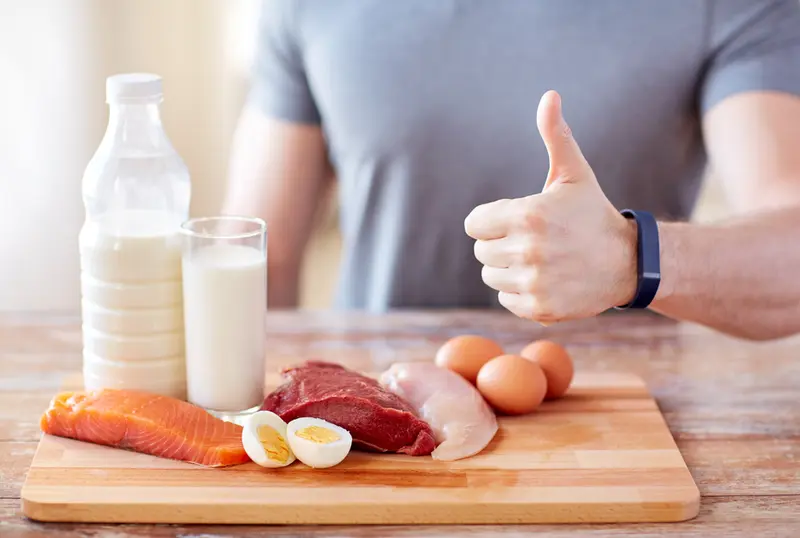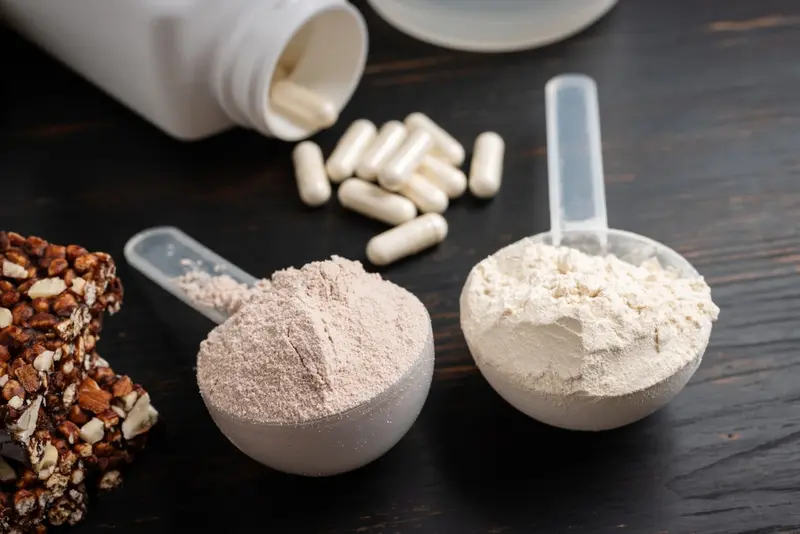Recovery in Nutrition: A Comprehensive Guide to Boosting Performance
In nutrition, recovery is the process by which the body uses food and liquids to heal, restore, and energize itself after physical exercise. Muscle regeneration, energy renewal, and healing of other types all depend on it absolutely. Protein, water, and nutrient timing are three key components that ensure long-term health and best performance. This book looks at these elements and provides doable food-based strategies to help with your recovery in nutrition.
Why is Recovery in Nutrition Essential?
Accurate recovery Diet determines athlete performance, injury prevention, and well-being as well. It reduces inflammation, replenishes energy, and aids muscles in healing. Improvement of endurance, strength, and resilience helps the recovery diet support long-term fitness goals. Athletes without proper nutrition may feel fatigued, perform less, and run increased risk of injury..

Protein for Recovery
Why Protein is Key to Recovery
Among great sources are lean meats, plant-based proteins, dairy products, and supplements; protein builds stronger, more durable muscles by providing the amino acids needed to heal these damages. Muscle development and healing mostly depend on protein. Muscle fibers tension and small tears as you workout.
How Much Protein Do You Need?
Eat foods high in proteins after exercise and space over the day to maximize benefits. One way to start recovery is with a post-workout smoothie including fruit and whey protein. Your degree of exercise will determine how much protein you need. Usually daily, athletes need 1.2 to 2.0 grams of protein per kilogram of body weight.
Nutrition to Enhance Recovery
Energy Balance and Availability
Healing depends totally on maintaining an energy balance. When calorie consumption match expenditure, the body has skills to cure itself. Energy shortages, on the other hand, lower immune system function, slow down muscle repair, and make one sleepy. Make sure your needs for recuperation are being met by the calories you consume.
Macronutrients for Recovery
- Carbohydrates: Rebuilding glycemic levels calls for carbohydrates, which help feed your muscles throughout activity. Among excellent alternatives include fruits, whole grains, and starchy vegetables.
- Fats: Healthy fats, which abound in avocados, almonds, and olive oil, help to balance hormones and reduce inflammation..
- Optimal Ratios: Using a 3:1 ratio of carbohydrates to protein, a recovery meal would be a turkey sandwich baked with whole-grain bread accompanied by a side of fruit.
Micronutrients That Matter
Key minerals and vitamins are absolutely essential for recuperation and general well-being.:
- Vitamin D: Thought of as the “sunshine vitamin,” it is very vital for calcium absorption, which strengthens bones and prevents injury. Vitamin D also reduces risk of cramps and enhances performance; it helps muscles contract.
- Magnesium: This mineral is essential for around 300 enzymatic activities in the body; these reactions regulate nerve activity and muscle relaxation among other things. Magnesium lowers lactic acid build-up, therefore easing post-exercise discomfort and promoting calm sleep.
- Zinc: Important for cell regeneration, zinc strengthens immunity and accelerates healing of wounds. Given its encouragement of tissue regeneration, it is especially important for recovery following intense exercise.
- Antioxidants: Mostly found in colorful fruits and vegetables like berries, spinach, and kale, antioxidants counter free radicals produced during exercise. This lowers oxidative stress, reduces inflammation, and hastens recovery.
Including these micronutrients in your diet improves physical recovery as well as helps long-term wellness and stress resistance.
Hydration
Rehydration is essential for recovery. While sodium and potassium electrolytes control fluid levels, water carries nutrients and helps regulate temperature. Coconut water, sports drinks, and electrolyte pills help you effectively replace lost fluids.

Nutrient Timing
When to Eat for Optimal Recovery
Recovery is much influenced by the time one eats. Pre-workout meals for energy should revolve around easily digestible carbohydrates. Post-workout meals should combine protein and carbohydrates to promote muscle regeneration and glycogen replacement, consumed thirty minutes to two hours.
Snack Ideas for Sustained Recovery
- Greek yogurt piled with oats and honey.
- Slabs of banana and almond butter on whole-grain bread.
- A frozen berry protein drink mixed with spinach.
Supplements for Recovery
Do You Need Supplements?
Through focused nutrients to promote muscle regeneration, energy replenishment, and general performance, supplements can boost recovery nutrition. While whole foods should always form the foundation of your diet, supplements can fill in for dietary needs not entirely met. These evidence-based supplements deserve some thought:
- Whey Protein: Excellent fast-digesting protein ideal for recovery after exercise. It has all nine of the necessary amino acids and is very good in promoting muscular protein synthesis.
- BCAAs (Branched-Chain Amino Acids): Comprising leucine, isoleucine, and valine, BCAAs assist muscles repair, reduce discomfort, and may prevent muscular breakdown after prolonged exercise.
- Creatine: Found in muscles that enhances energy availability, this naturally occurring chemical aids in strength training and improves performance of high-intensity activities.
- Electrolytes: Among the supplements that help retain water, prevent muscular cramps, and rebuild what is lost by sweating during intense exercise are sodium, potassium, and magnesium.
- Omega-3 Fatty Acids: Found in fish oil, they reduce inflammation, improve joint condition, and aid in quick recovery after intense activity..

Conclusion of Recovery in Nutrition
Building a Recovery Nutrition Plan
A customized recovery plan considers your tastes, degree of exercise, and goals. Start with including premium protein, maintain energy balance, and precisely plan your meals. Key is consistency; pay attention to your body and adjust as needed.
Key Takeaways
- Protein: important for the development and healing of muscles.
- Energy Balance: Essential for restoring energy supplies.
- Hydration: For best performance and recovery, key is
- Supplements: When utilized sensibly, a good addition.
Giving recovery in food first attention will assist you to correctly attain your fitness goals, avoid injuries, and enhance performance.
